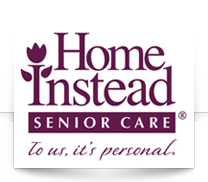The 40-70 Rule: Conversation Starters (Part 2)
When the House Is a Mess
You find that your 77-year-old mother’s house is often in disarray when you visit. You believe it’s time for her to make a change in her living arrangement. What do you say?
Observation and careful attention to the problem should be your first course of action. Avoid diagnosing a problem and deciding on a solution quickly. Approach your mother with a sense of working together to find a solution rather than telling her what to do.
The specific circumstances – such as financial constraints – may be relevant. Is the problem simply that your mother is physically challenged by strenuous housework or is she deteriorating mentally? Does she just need help tidying up around the house or are other aspects of her personal care, such as bathing, going downhill?
Assuming that the problem is physical – where activities such as vacuuming or bending are becoming issues – then begin the conversation with an offer: “Mom, I have some extra cash. What do you say we find someone to help you with the heavy stuff, like vacuuming? It will be my treat.” Seniors are often very willing to accept help around the house. And most communities have ample resources such as cleaning services and companies like Home Instead Senior Care that can help.
Research: The most difficult topic for adult children to discuss with their aging parents was that they have to leave their home. That conversation was a problem for more than half of those who were still in the parent-child role, as well as more than one-third who didn’t have the communication obstacles.
A Senior Moment or Something More?
You’ve just stopped by your parents’ house and for the second time in a month, noticed that your 70-year-old mother has forgotten the name of a close friend. Is it Alzheimer’s disease or dementia, a senior moment or just a passing phase? More importantly, how do you find out?
Make sure you consider you mom’s history and personality so that you can determine if this is a change. Some people have always been bad with names, but if your mom is forgetting a close friend’s name and you notice signs of disorientation, you might say: “Gee Mom, perhaps you should see a doctor and get checked out. I’m sure it’s nothing, but it would really put my mind at ease if you’d let a doctor make sure your memory is O.K.” Such a conversation starter focuses on the positive not the negative.”
Research: A parent’s cognitive condition was a topic that 50 percent of Baby Boomers wanted to know more about.
The Medication Quagmire
When visiting your 85-year-old dad, you see bottles of medication on the kitchen counter, on the bathroom counter and on his nightstand. You wonder how he is keeping all of his medications straight. What do you ask?
It’s good to use humor and, in a situation like this, to assume that he is keeping them straight (innocent until proven guilty). There may be good reasons why some of his medications are in the kitchen (he’s taking them with food), while others are on the nightstand (he’s taking them before bed).
Pointing to a bottle and asking, “How the heck do you keep all these pills straight, Dad?” would be a good conversation starter. If the response includes the reasons you suspected above, then it sound like things are under control. If, however, he says, “I don’t know. I do my best. I’m not even sure what some of them are,” then the situation probably needs more attention.
If he’s having a problem, talk to him about a pill organizer, which could help him keep his medications better organized: “Dad, I’ve heard about organizers that can help you keep all your pills in one place and make it easier for you to keep them straight. Why don’t I check into it?” In addition, one service that Home Instead Senior CAREGivers provide seniors is medication reminders to assist them in managing their daily medications.
Research: Forty-nine percent of adult children said they were interested in learning more about their parents’ medication management.

